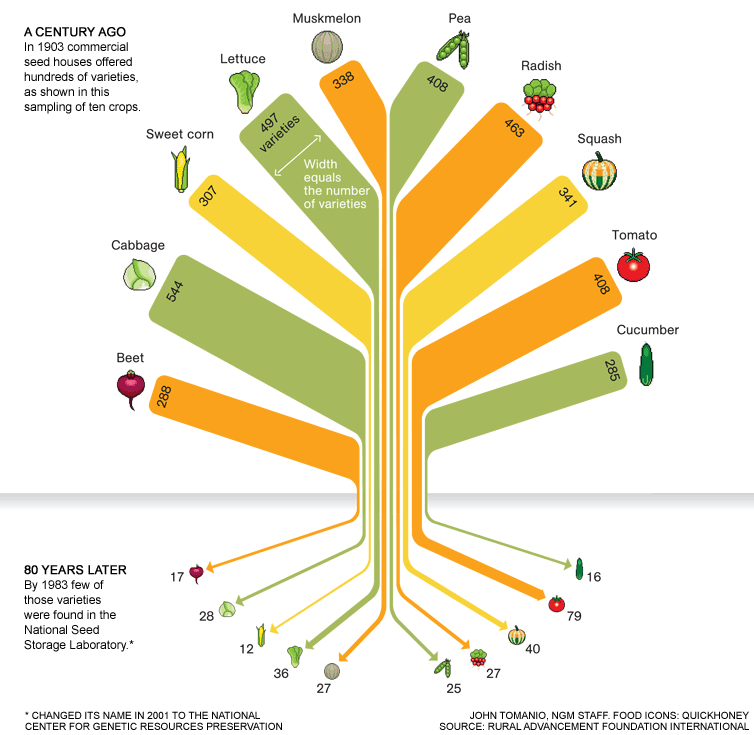Washington Consumers are voting now to require foods that contain genetically engineered ingredients – and sold on retail shelves – be labeled as such. While it is important to know what’s in our food, the campaign has taken our attention from one of the major influences of genetic modification, licensed seed varieties, and seed patents – the reduction in food crop diversity.
Around 100 years ago there were hundreds of varieties of vegetable and fruit seed available to the farmer and home gardener. By 1983 those varieties had been reduced by more than a factor of 10. Seed breeders like Frank Morton who focus on “open-pollinated” varieties specialize in varieties that breed true, unlike the many hybrid varieties offered by giant seed companies – and protected by a web of intellectual property rights methods.
What began in 1930 as a restrained attempt to reward horticultural inventors like Luther Burbank (the self-educated, self-styled, plant genius of his day), has become a kind of free-for-none piñata hunt entrancing corporations and university IP offices for a decade. Everyone with an IP portfolio is blindly swinging over their heads, hoping they will get their reward when the prizes come raining down.
The crux of the issue is that the traits of plants are long evolved and interrelated; they are interdependent on gene expression, environmental cues and stresses, metabolic pathways, protein functions, etc. Equally, the process of breeding is cumulative, subsuming, and reiterative—with each cycle of reproduction aspects of genetic information can be conserved, modified, or removed by the breeder or the environment.
Many traits (like yield) are quantitative in nature and not clearly measurable or stable across environments. Traits can also arise from different sources or genetic recombinations than those claimed in patent descriptions, which raises the question of competing claims for analogous traits with differing parentage. In this kind of legally threatening environment, many breeders feel constrained in their freedom to operate, fearing that a patent claim by competitors could undo many years of work and investment.
Frank Morton, Seed Breeder
Read Frank’s essays about the need to have open-pollinated seeds to protect the diversity – and genetic resources – of our food crops:
Biology Defies the Nature of Patents
Plant Patents on Common Vegetables – What We Are Up Against
